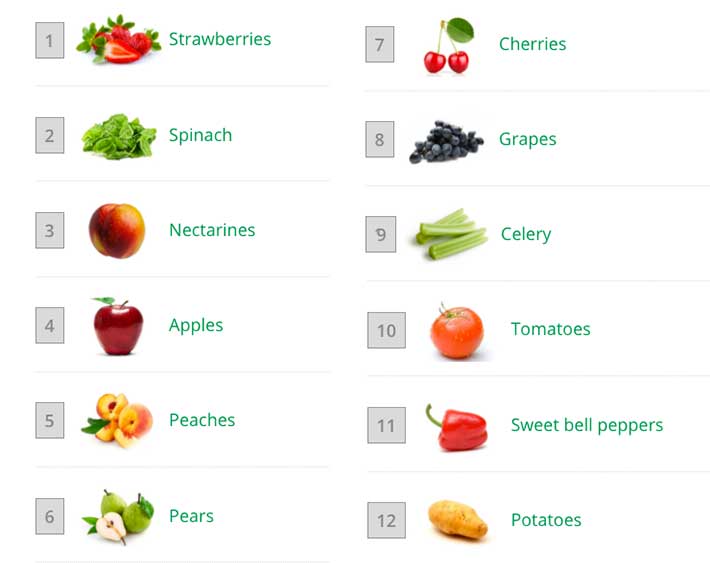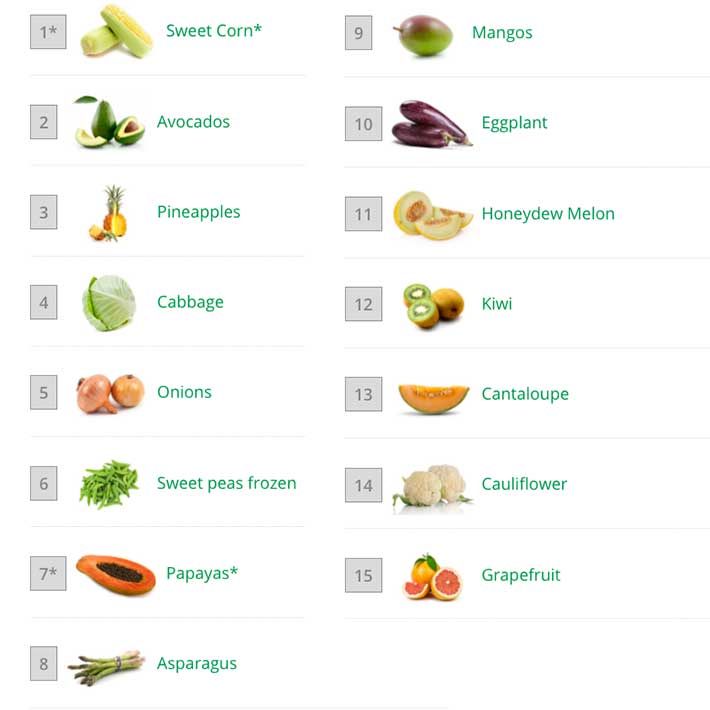…and reds, and yellows, and every other color of the rainbow! That’s right, I’m talking about the power of produce. How and what you eat has an impact not only on your belly, but also on your entire body… but how do you know what you are really buying? Are you aware that the average conventional apple contains at least 48 pesticides?! Gross! So we know that most conventional farmers use dangerous, endocrine-disrupting pesticides, but it can be incredibly overwhelming to make a smart game plan for the grocery store. Organic produce can be expensive, and how can you take care of your body without breaking the bank? Fear not, friends! The EWG has got you covered!
The “Dirty Dozen”

The EWG, or Environmental Working Group, makes it incredibly easy to navigate the delightful world of produce. Each year, the EWG releases two crucial lists for shopping success — the Dirty Dozen, and the Clean Fifteen. The Dirty Dozen lists the 12 produce items that contain the most pesticides. These are the items that you ALWAYS want to buy organic. This year, strawberries and spinach top the list…two delicious and nutritious produce powerhouses that will be in season shortly.
The “Clean Fifteen”

The Clean Fifteen is, as you likely guessed, the list of the 15 lowest pesticide offenders. These items, for the most part, have a thick outer shell that protects the glorious goodness within. While it’s wonderful if you are able to buy all organic produce, these fifteen items give you a little wiggle room if you need to purchase the conventional variety. My best pal, the mighty avocado, is second on this list…phew!
If you are stressing about having to memorize these lists for safe shopping success, the EWG is a step ahead of you with a free, very user-friendly app and printable wallet-sized guide. Simply search for the “Dirty Dozen” app in your app store, and get ready to rock your next trip to the market with confidence and produce power!


 It’s hard to beat a person who never gives up.
It’s hard to beat a person who never gives up.
Jon Rice says
Thanks for spreading the word about the “dirty dozen” and “clean fifteen”. I’m always torn between buying organic vs. conventional and wondering if I always have to buy organic, etc. Now I know: no more conventional strawberries or apples for my family!